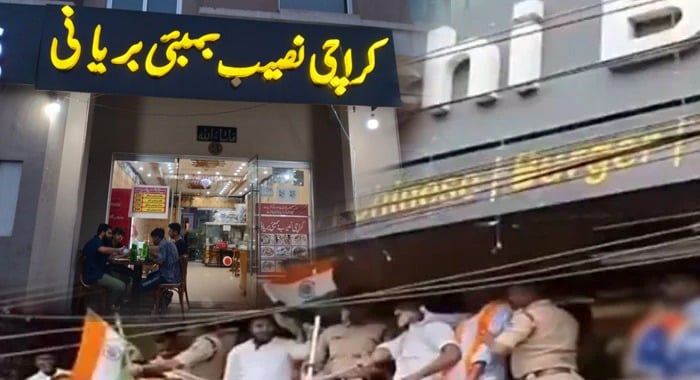In a stark display of contrasting public behaviour, recent incidents in India and Pakistan have drawn attention to the two nations’ approach to rivalry and tolerance following a regional setback for India.
After facing defeat at the hands of Pakistan, reportedly in a cricket or geopolitical context, unrest broke out among Indian hardliners, particularly supporters of the ruling BJP party. In Hyderabad Deccan, videos surfaced showing BJP activists vandalising shops carrying Pakistani-themed names. One such target was a bakery named “Karachi Bakery,” which has long been a part of Hyderabad’s culinary landscape.
These acts of aggression reflect a growing trend of intolerance and reactionary politics among segments of India’s population, particularly when nationalist sentiments are inflamed. The destruction, seemingly driven by wounded pride, underscores how political passions can be misdirected toward symbols rather than real issues.
Also Read: India Got the Trailer, the Full Picture Is Yet to Come: Lt Gen (R) Abdul Qayyum
Meanwhile in Pakistan, the mood could not have been more different. Despite numerous eateries and shops in Karachi and other cities proudly bearing Indian names, like Bombay Biryani, Delhi Nihari, and Hyderabadi Achaar, there has been no backlash or violence. On the contrary, these places continue to thrive with large crowds, highlighting a sense of normalcy and public maturity.
Speaking to local media, Pakistani citizens made it clear: they have no problem with Indian-themed businesses and would never stoop to retaliatory behaviour. “We are not like them,” said one Karachi resident outside a Delhi Nihari outlet. “We are aware and sensible people. Why destroy what brings joy and flavour to our lives?”
This sharp contrast highlights a deeper divide — not just between two governments or armies, but between how their citizens respond to conflict and competition. Where one side turned to hostility and vandalism, the other chose peace, coexistence, and business as usual.
In an age of social media outrage and rising nationalism, Pakistan’s public response offers a reminder that dignity in defeat — or in victory — speaks louder than mobs with bricks.





